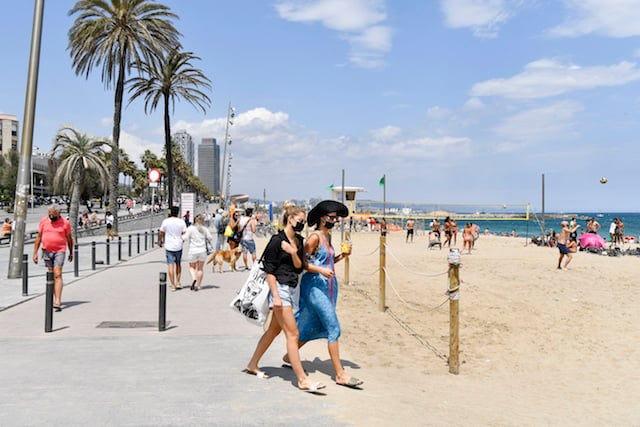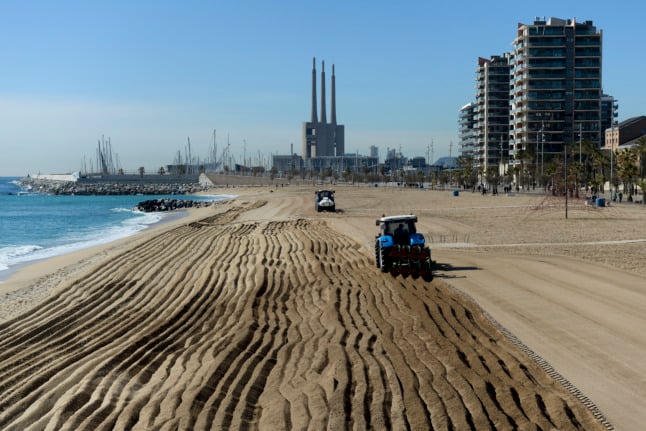In a packed out hall of Madrid’s iconic Bellas Artes building on Wednesday evening an audience listened raptly as broadcasting legend Jonathan Dimbleby acted as referee between representatives from across Spain’s political spectrum.

Photo: Alberto Nevado / BBC
In an hour-long debate that focused predominantly on the Catalan independence issue, Alfred Bosch, leader of the Catalan separatist ERC party in Barcelona's City Hall braved a hostile crowd to outline his view on how Catalonia will indeed become independent.
Squaring up to the PP’s representative Francisco Martinez – who kept to the party line insisting dialogue was possible only within the framework of upholding the rule of law -Bosch met a chorus of boos from the audience when denouncing police violence at the polls and the fact that elected politicians from his party are currently behind bars.
“If you are using public money to carry out an illegal vote – as ruled so by the courts and not the government – then you have to expect the consequences,” said Martinez to a round of applause.
It became apparent that the atmosphere would be entirely different if the debate had been held in Catalonia and not in front of a Madrid-based crowd.
Begoña Villacis, on the Madrid council for Ciudadanos, attempted to outline her party's policies on Catalonia and the King’s speech, but it was hard to distinguish her views from those of the PP.
And she admitted she had “no idea” about Gibraltar and where Spain might stand in negotiations over the former colony as Brexit looms. A response that warranted a quip from Dimbleby.
But to her credit, after visible hostility between her and her Catalan counterpart Bosch, the evening ended with a conciliatory embrace between the pair, that brought applause and cheers from the crowd.
Kissing and hugging between #Spain (@begonavillacis) and #Catalonia (@AlfredBosch) at the #BBCWQ in Madrid. Audience breaks into applause. Kudos to @iamcopykat for caching the moment! pic.twitter.com/tt8Sgnwqkg
— Albert Guasch Rafael (@albertguaschr) January 17, 2018
Ana Romero, whose explosive book “El Rey ante el Espejo” is out this week, was the only member of the panel without a political agenda and provided a voice of reason with the wish that politicians would “stop quoting election numbers at each other and just get on and find a solution.”

The questions came from the audience, including one from Emilio Silva, a campaigner who has worked tirelessly to arrange exhumations of victims of the Spanish Civil War, asking the panel for their views on how more than 100,000 bodies still lie in unmarked graves across Spain, four decades after the dictatorship ended.
The question provoked visible emotion among the panel and the audience alike.
But the burning issue of the night? A question about which Spaniards will always remain divided. Tortilla Española: With or without onions?
To listen to the full broadcast tune in to the BBC World Service on Saturday January 20at 8pm CET. It will remain available online after that at www.bbc.com/worldserviceradio

Left to right: Alfred Bosch (ERC), Begoña Villacís (Ciudadanos), Francisco Martinez (PP) Ana Romero (Journalist and author). Photo: Alberto Nevado / BBC





 Please whitelist us to continue reading.
Please whitelist us to continue reading.